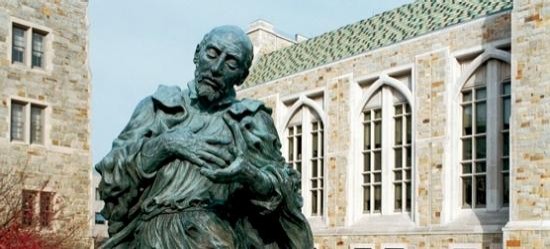Religious Diversity and the Common Good

A conference to honor Boston College's sesquicentennial
Date: November 13, 2013
Abstract
How can people of different faiths share the same values? From the days of the founding to the present, that question has preoccupied American thinkers of every religious and non-religious persuasion. The answer may lie not in abstract theory but in the lived experience of people in their communities. Join us for Boston College’s closing Sesquicentennial Symposium, as we welcome leaders from a variety of academic, civic, and religious communities throughout the country to reflect on the nature and pursuit of the common good in a pluralistic society.

